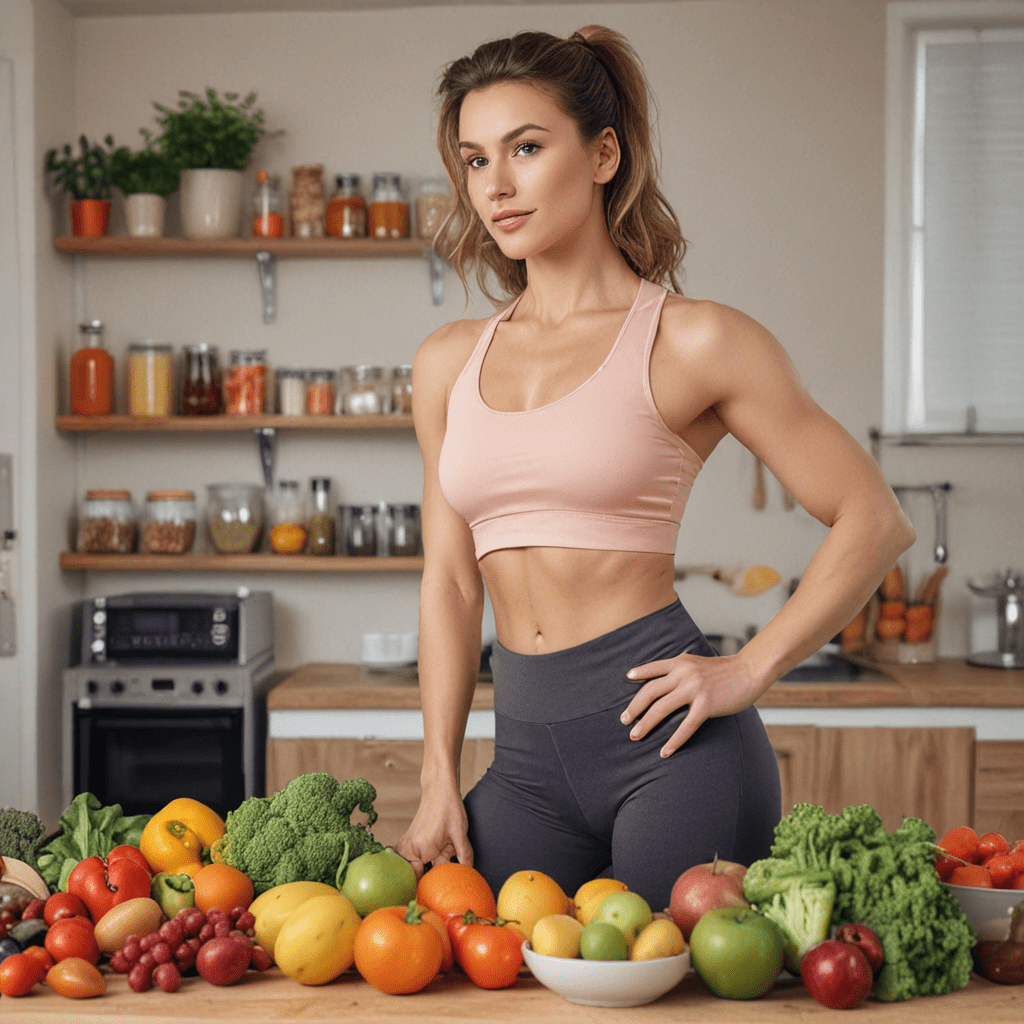Vegan Diet and Eye Health: Protecting Vision Naturally
1. Introduction: The Interconnection Between Diet and Eye Health
Our sense of sight is a precious gift that allows us to navigate the world, appreciate its beauty, and connect with others. Maintaining good eye health is crucial for preserving this invaluable ability, and our diet plays a significant role in achieving it.
2. Why a Vegan Diet May Benefit Eye Health
A vegan diet, which excludes all animal products, has been linked to numerous health benefits, including potential advantages for eye health. This is primarily due to the abundance of essential nutrients found in plant-based foods, many of which are vital for optimal eye function.
3. Nutrients Essential for Eye Health: Sources in a Vegan Diet
Several nutrients are crucial for maintaining healthy vision. A vegan diet can provide ample amounts of these nutrients:
a. Lutein and Zeaxanthin
These antioxidants are concentrated in the macula, a small area in the center of the retina responsible for sharp central vision. They protect the macula from damaging blue light and may reduce the risk of age-related macular degeneration (AMD). Plant sources of lutein and zeaxanthin include leafy greens, corn, and egg yolks (for non-vegans).
b. Omega-3 Fatty Acids
Omega-3 fatty acids, particularly DHA (docosahexaenoic acid), are essential for the development and function of the retina and the brain. They can be found in algae-based supplements, walnuts, and flaxseeds in a vegan diet.
6. Eye Conditions Linked to Nutrient Deficiencies in Vegan Diets
A vegan diet can provide all the essential nutrients for eye health if planned carefully. However, certain nutrient deficiencies can arise, potentially leading to eye-related issues. Vitamin B12 is particularly important as it is not naturally present in plant foods. A deficiency can cause optic nerve damage, vision loss, and other neurological problems. Additionally, vegans may be at risk for low levels of iron and zinc, which are crucial for red blood cell production and immune function, respectively.
7. Maintaining Electrolyte Balance for Eye Health
Electrolytes, such as sodium, potassium, and chloride, play a role in regulating fluid balance in the body, including the eyes. Dehydration can occur when electrolyte levels are imbalanced, leading to dry eyes, blurred vision, and other eye-related discomfort. A well-balanced vegan diet that includes plenty of fruits, vegetables, and whole grains can help maintain proper electrolyte levels.
8. Considerations for Balanced Nutrition in a Vegan Diet
To ensure adequate intake of all essential nutrients for eye health on a vegan diet, it is crucial to consume a variety of plant-based foods from all food groups. Leafy greens, fruits, legumes, nuts, and seeds should form the foundation of a balanced vegan diet. Additionally, fortified foods, such as plant-based milks and cereals, can provide additional nutrients, including vitamin B12 and vitamin D.
9. Tips for Incorporating Eye-Healthy Foods into a Vegan Lifestyle
Incorporating eye-healthy foods into a vegan lifestyle is simple and flavorful. Some tips include:
- Start the day with a green smoothie: Blend leafy greens, fruits, and plant-based milk for a nutrient-packed breakfast.
- Make leafy greens a staple: Add spinach, kale, or collard greens to salads, soups, and stir-fries.
- Snack on fruits and nuts: Berries, oranges, and almonds are excellent sources of antioxidants and essential nutrients.
- Include legumes in your meals: Lentils, beans, and chickpeas provide protein and other essential nutrients.
- Try fortified plant-based milks and cereals: These products can supplement vitamin B12, vitamin D, and other nutrients.
10. Conclusion: Empowering Vision through a Plant-Based Diet
A vegan diet can provide all the nutrients necessary for maintaining optimal eye health. By consuming a variety of plant-based foods rich in antioxidants, omega-3 fatty acids, vitamins, and minerals, vegans can protect their vision and enjoy a lifetime of clear and vibrant sight.
FAQs
Can vegans get enough vitamin B12 for eye health?
Vitamin B12 is not naturally present in plant foods. Vegans should consume fortified foods or supplements to ensure adequate intake.
Are there any vegan-friendly sources of omega-3 fatty acids?
Yes, algae-based supplements, walnuts, and flaxseeds are all vegan sources of omega-3 fatty acids.
How can I reduce the risk of eye problems on a vegan diet?
Eat a balanced diet that includes a variety of plant-based foods, consider fortified foods, and monitor your vitamin B12 levels.
Is a vegan diet better for eye health than a non-vegan diet?
A well-planned vegan diet can provide all the nutrients necessary for eye health. However, a balanced non-vegan diet can also be beneficial for eye health.


